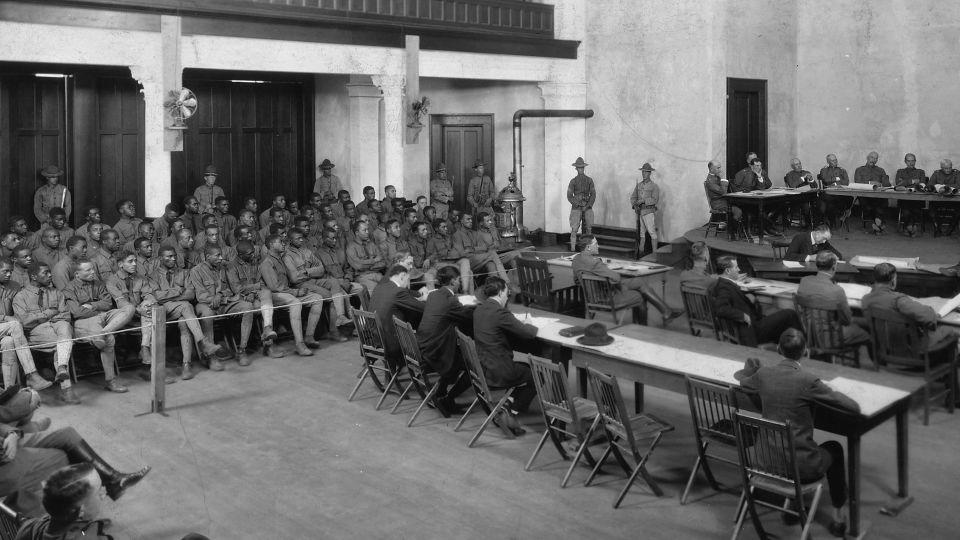US Army sets aside convictions of 110 Black soldiers over 1917 Houston riots

The US Army has set aside the convictions of 110 Black soldiers charged after the World War I-era Houston riots, with the aim of correcting their decades-old records and characterizing their military service as honorable, according to the service.
“After a thorough review,” the Army Board for Correction of Military Records found the soldiers of the 3rd Battalion, 24th Infantry Regiment – also known as the Buffalo Soldiers – “were wrongly treated because of their race and were not given fair trials,” Secretary of the Army Christine Wormuth said Monday in a news release.
“By setting aside their convictions and granting honorable discharges, the Army is acknowledging past mistakes and setting the record straight,” Wormuth said. The military branch also has set up a process for the soldiers’ relatives to get military benefits, an Army undersecretary said during a Monday ceremony.
The historical change for the 110 convicted soldiers comes as American institutions from the Pentagon to Congress to elite universities have acknowledged the nation’s scourge of slavery and Jim Crow racism and in many cases sought to revisit its modern vestiges.
The US in 1917 had just entered WWI when the Buffalo Soldiers arrived in a Houston “governed by racist Jim Crow laws” to serve at an Army construction site, Brigadier General Ronald Sullivan said Monday, according to a video of the ceremony.
“The soldiers came to town with patriotism in their hearts, ready to serve their country faithfully but were met with racist provocations and physical violence,” he said.
“Amid rumors of additional threats to Soldiers, a group of more than 100 Black Soldiers seized weapons and marched into the city where clashes erupted,” according to the Army news release.
The soldiers on August 23, 1917, took up arms “thinking they were marching in their own self-defense,” Undersecretary for the Army Gabe Camarillo said during Monday’s ceremony. The so-called Houston riots left 19 people dead.
“In the months that followed, the Army convicted 110 Soldiers in a process that was, according to historians, characterized by numerous irregularities,” according to the Army. Of those, 19 were slain in the largest mass execution of soldiers by the branch, it said.
Now, the Army has set aside all 110 court-martial convictions of 3-24 soldiers stemming from the events of August 23, 1917, corrected military records to show honorable discharge for 3-24 soldiers not restored to duty and set up a way “to deliver survivor benefits long-denied the financial resources owed to them” through their family members, Camarillo said.
The Buffalo Soldiers nickname came to be associated with the all-Black 24th and 25th Infantry regiments, which often fought beside cavalry outfits. It originally was given to Black soldiers from the 9th and 10th Cavalry regiments by their adversaries in the Indian wars following the Civil War, perhaps because the Indians respected the soldiers for their courage and fearlessness – qualities they found in the buffalo.
For more CNN news and newsletters create an account at CNN.com


